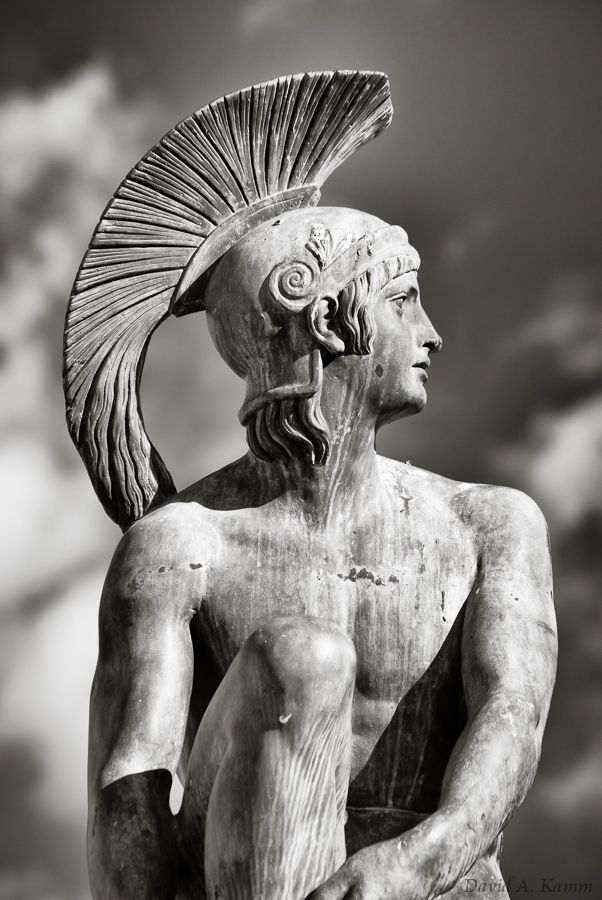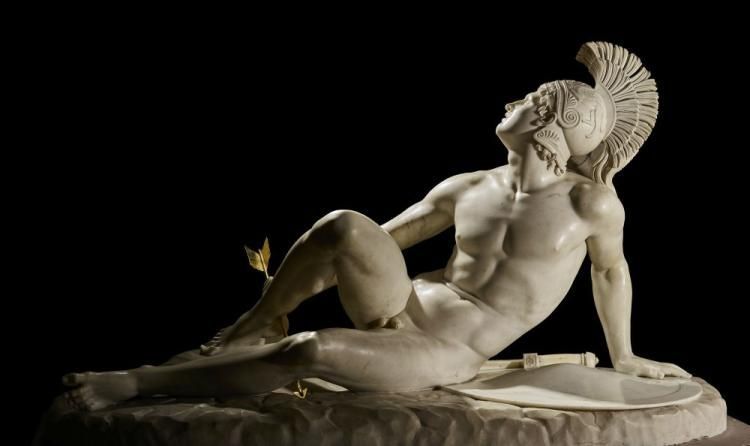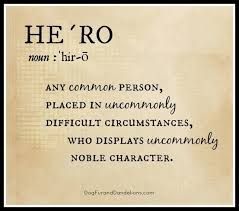Top Ten Lessons from Greek Mythology
From love and war to downright betrayal, no one did it better than the Greeks.

Perseus and Medusa:
Perseus, the Demi-God son of Zeus, was sent to kill the monstrous Medusa- a woman with snakes for hair, who turned all that looked at her into stone. Somehow Perseus managed to complete this almost impossible task. How did he manage to do it? Well, the God Apollo lent him his invisible helmet so that Medusa could not see Perseus coming. Zeus lent Perseus the sharpest sword in existence so that he could kill her with one swing of his sword. The Goddess Athena lent him a shield polished so brilliantly that it doubled as a mirror, so that Perseus did not have to look directly at Medusa and could instead focus on the reflection. Lastly, the messenger God, Hermes, lent him his sandals so that he could fly toward Medusa’s head. Not a bad bunch of friends to have, huh?
Life Lesson: Often, we remember the hero and his act of heroism but behind every hero are the people that made him successful by helping him every step of the way- be it his family or his friends.

Orpheus and Eurydice:
How far would you go for love? Some would travel the world. Orpheus, the most celebrated musician in the ancient world, went a step further and entered the Underworld. He begged the lord of Death, Hades, to bring his lover back to life. The usually merciless Hades softened the moment he heard Orpheus’ harp and granted him his wish, but on one condition: Eurydice would follow Orpheus out of the Underworld and back to Earth but Orpheus would have to trust Hades. If he looked back for even a moment to check that his lover was following him, then she would disappear. Orpheus managed to resist temptation and kept his focus on what was ahead of him until he got to the last step. He just had to look! And so, he turned around and in that moment the silent Eurydice looked back at him with tears as she fell through the ground and returned to Hades.
Life lesson: Love is blind, trust is important but patience? Patience is everything.

King Midas:
What is the difference between ambition and greed? When does one cross the line from one into the other? Well, the Greeks made that quite clear in the myth of King Midas. King Midas was always looking for short-cuts, so when he discovered one of Apollo’s servants sleeping in his kingdom, Midas offered him great hospitality. In return, the servant gave Midas the opportunity to make a wish. King Midas did not wish for a better world or for the betterment of others. Instead, he wished for everything he touched to turn to gold. And his wish came true. Midas turned every brick in his palace into gold. Then came the horror. He tried to eat some grapes, but they turned to gold the moment he touched them. His beloved daughter came to his aid and he hugged her in despair, and she too turned to gold. Midas was left on his knees, begging for Zeus to reverse the spell.
Life Lesson: Materialism is just that: materials. Beauty is in the friendships and relationships we hold with each other and nature. Ambition for the betterment of others is to be encouraged; ambition purely for oneself is greed.

Theseus and the Minotaur:
King Minos of Crete had all the tools at his disposal to make the most of his evil nature. He had an inescapable labyrinth which housed the fearsome Minotaur. Every year Minos demanded that the King of Athens, Aegeus, send seven boys and seven girls to feed the Minotaur. Aegeus often sent the poor and helpless until, one day, his own son, Prince Theseus, outraged at the injustice of the human sacrifices his father agreed to, decided to volunteer himself. Whilst in Crete, he fell in love with Minos’ daughter who slipped him a sword and a ball of string, with which he was able to defeat the monster and find his way back out of the labyrinth. Theseus returned to Athens victorious.
Life Lessons: A leader does not hide behind his people. He does not sacrifice the helpless but defends them.

Icarus and Daedalus:
Icarus’s father, Daedalus, was a coveted inventor who had created the infamous labyrinth where King Minos had housed the Minotaur. The evil King Minos later imprisoned Daedalus and his son, Icarus, in a high tower. Nothing, however, could stop Daedalus’ thirst for freedom and for years he plucked feathers from whichever birds flew into the tower, until he had made wings large enough for both himself and his son. On the fateful of their escape, father and son flew out of the towers full of hope. All was well until Icarus became intoxicated with his newfound power and soared high toward the sun. Daedalus could only watch as his son's wings melted and he came swooping down into the ocean and to his death.
Life lesson: Science should know it’s limits . Ambition is beautiful but over ambition is dangerous.

Hades and Persephone:
Love melts even the coldest of hearts and there is none colder than the God of the Underworld, Hades. Zeus’ brother lived a lifetime amongst fiery beasts in the shadowy realms of Hell yet the moment he met Persephone, his heart melted. Hades kidnapped Persephone back to his Kingdom. Demeter, Persephone’s mother and nourisher of the Earth, protested to the Gods about her daughter’s abduction. The Gods, giving in the wrath of the loving mother, sent Hermes to the Underworld to bring Persephone back but, to everybody’s shock, Persephone was in love with Hades. Hades had built gardens and palaces for her and his newfound love had brought out a side of him no one knew existed. In the end, the Gods all came to a compromise: Persephone would spend half the year in the Underworld and the other half on Earth. However, Demeter refused to nourish the earth during her daughter’s absence, hence the presence of Autumn and Winter on Earth. Spring and Summer signify the months Persephone returns to earth.
Life Lesson: Take your pick here. Never underestimate the loyalty and love of a mother, who is willing to challenge the Gods for her daughter’s honour. Another lesson here is that even the darkest of hearts can grow pure love if given the right waters and that true beauty must be shared, not possessed.

Achilles and King Priam:
The Iliad tells the epic story of the Trojan war involving the Greeks and the Trojans. Achilles, the greatest of the Greek warriors, eventually seeks out and defeats Hector, the Prince of Troy and the greatest of the Trojans. After the victory, Achilles tied Hector’s body to his horse chariot and dragged his mutilated body back to the Greek encampments, refusing to return Prince Hector’s body. No one dared challenge Achilles for Hector’s body, no one that is but Hector’s aged and weak father, King Priam, who snuck into the Greek camps. He risked it all for the right to bury his son, kissing Achilles hand in the process. Achilles takes pity on Priam and lets him take Hector’s body back to Troy to conduct all the proper funeral rites.
Life lesson: The first lesson is that even a King has to bow down and kiss the hands of a warrior.

Odysseus and the Trojan Horse:
Most of the famous male heroes in Greek mythology are known for their incredible bravery and physical prowess. Odysseus, however, was a man known above all for his incredible intellect. In fact, Homer dedicated an entire book, The Odyssey, to Odysseus’ exploits, where he uses his mind to defeat the witch Cersei and the one-eyed giant, Cyclops, amongst others. However, Odysseus’ most famous act of brilliance came in the Trojan War. The Greeks, for whom Odysseus fought for, had laboured for over a decade and still had found no way to break through Troy’s city walls. All seemed lost until Odysseus came up with the crafty idea of creating a huge wooden horse and gifting it to the Trojans as an act of apology for the war. Inside the horse would lay several Greek soldiers, armed and waiting. The Greeks then pretended to abandon the war and return home and, just as Odysseus had imagined, the Trojans celebrated the victory and pulled the horse into the city walls. As night fell, the soldiers hidden inside the horse carefully climbed out and opened the city gates and allowed the entire Greek army to run through. Troy was burned to the ground.
Life Lesson: When your enemy gives you a gift, you might want to check it first!

The heel of Achilles:
When Achilles, hero of the Iliad, was born his mother dipped his body into the mystical river Styx. She held him by the heels and ensured he was covered with the holy water which would make him invincible. Achilles lived to fight and covered himself in glory in the Trojan war. This was the opposite of the Trojan prince, Paris, who started the war in the first place by eloping with Helen, Queen of Sparta. Unlike Achilles, who covered himself in glory in the Trojan war, Paris was seen as a coward who brought war to his people because he stole a Greek King’s wife. However, toward the end of the Iliad, with the Trojans all but destroyed, Paris aims an arrow at Achilles’ head and instead gets him in the heel- the only place his mother hadn’t washed in the River Styx. Achilles, to the surprise of all, died from the wound to his heel.
Life Lesson: No man is invincible and everyone has a weak spot; and even the greatest coward can redeem himself with bravery and a bit of luck.

Prometheus, The God of Fire:
Zeus, the King of the Gods, was sure that humans were not responsible enough to deal with having the ability to make fire and therefore kept the eternal flame in a temple in Mount Olympus. Prometheus, a Titan, took sympathy on humankind and felt that their progress was being curtailed by their inability to make fire. One night, Prometheus snuck into the temple and stole away a part of the flame and gifted it to humans. When Zeus discovered what had happened, he was enraged and had Prometheus apprehended. Zeus then tied Prometheus to a rock and ordered a giant eagle to eat a piece of his liver every day, a torture that poor Prometheus had to endure for 40 years until the hero Hercules finally freed him.
Life Lessons: Looking at all the chaos and destruction that humans have wrought with fire, maybe Zeus had a point. Sometimes limitation is as important as liberty and freedom.







